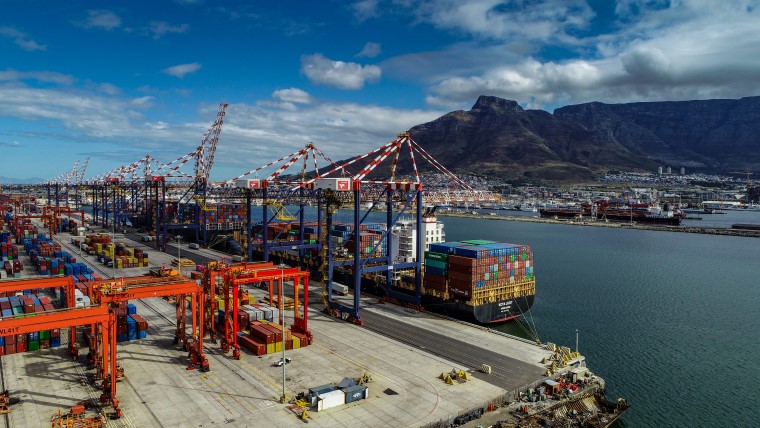Cape Town’s port is naturally positioned against the beautiful backdrop of Table Mountain and strategically placed along one of the busiest trade routes in the world. This is of significance to South Africa’s economy, apart from two other ports in Durban and Johannesburg. Cape Town also prides itself in being the largest fruit exporter out of South Africa.
Fruit exports account for about 50 percent of the country’s agricultural trade valued at over US $1.7 billion dollars while the export of fish was valued at US $123 million in 2020.
The ongoing COVID-19 situation has fueled the demand for fresh fruit and vegetables around the world, a positive by product of the pandemic on the agricultural community. As people become more health conscious, demand for fresh produce such as apples, blueberries, lettuce, ginger and grapes has seen a surge in prices.
Consumers trending towards low-carb food choices, has sparked the demand for broccoli and cauliflower. There was a shortage of avocados in 2020, while 2021 is proving to be a bumper year for several varieties of South African apples being exported to China.
The volume of apples exported to China more than doubled; there were 575, 838 cartons (12.5 kg each) exported up until May 30, 2021 in comparison to 277, 635 in the same period in 2020.
The apple’s pome counterpart, the pear, is expected to see a growth in production of up to 6 percent year-on-year to 17.9 million cartons. South Africa’s apple exports have evolved in the last decade, with Africa, the Far East and the Middle East being the main markets for this fruit, moving away from previous frontrunners, Europe and Russia. This is inevitable with increasing affluence and population growth, causing the shift in consumer demand to these regions.
Not to be overshadowed by the thriving agricultural industry, South Africa is a major exporter of minerals, with chromium and vanadium coming in at the top of the list, as the world’s top producer.
These aren’t metals we think about in our everyday lives, even if we do use them in some form or other on a regular basis. Think stainless steel pots and pans, medical or dental equipment which need chromium and the numerous parts of a car, for example, where vanadium is a crucial component- axels and piston rods.
There are other minerals/ precious metals in the mix as well- gold, diamond, platinum and zirconium, among others. As exports to Asia increase, China takes the lion’s share with about 10 percent of South Africa’s mineral exports heading there.
While a substantial volume of fruit and minerals are imported to China from South Africa, China exports a large quantity of clothing, textiles and toys to South African retailers. In 2020, clothing and textiles accounted for over US$1.6 billion of exports, while toys and games was an industry worth more than US$225 million.
One of South Africa’s busiest ports is Cape Town, which is located at the southern-most point of Africa. This is perfectly positioned as a hub terminal for goods heading to the Far East and South America. Also, with the substantial increase in goods heading to East and West Africa, Cape Town’s port has become the port of choice for the trans-shipment of cargo. The port manages gross tonnage of about 44,501,297 per year from 3,161 vessels.
PIL acknowledges South Africa’s position in supporting growth in the region and has been plying the route for more than two decades. PIL has offices in Durban, Cape Town and Johannesburg. Cape Town is a vital hub for PIL’s business and for driving trade in the thriving African market, with a sizeable volume of cargo arriving from China, another key market of PIL. These imports come from a multitude of Chinese cities including Shanghai, Ningbo, Shenzhen and Qingdao, as well as some Southeast Asian nations such as Indonesia, Thailand and Vietnam.
The products imported from Asia include clothing and textiles, foodstuff and toys. The main exports out of Cape Town to Asia are perishables such as apples, pears, grapes, lemons and oranges, as well as fish and minerals, as outlined above.
With its long history in South Africa and the volume of cargo managed by PIL in and out of the nation’s ports, PIL has made its mark as a reliable carrier and one that is highly regarded by its customers in Africa.
Furthermore, PIL is one of the most regular users of the ports in the country. They currently operate 2 weekly services on the Asia-South Africa route which calls in at the ports in Durban and Cape Town.
Just as exports from South Africa maintain a healthy economy, imports from the Asian nations add support to the lives and livelihoods of people in the region. Many of the imported goods are procured by chain stores which distribute them to the rest of the country. This in turn creates job opportunities for locals in the communities where the stores operate.


